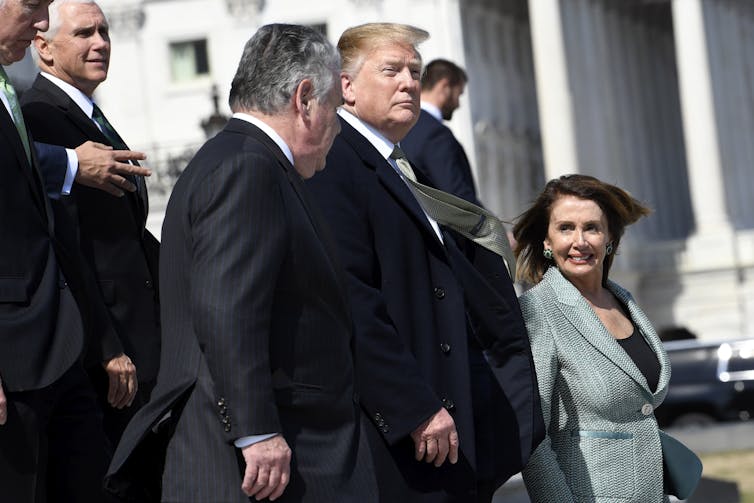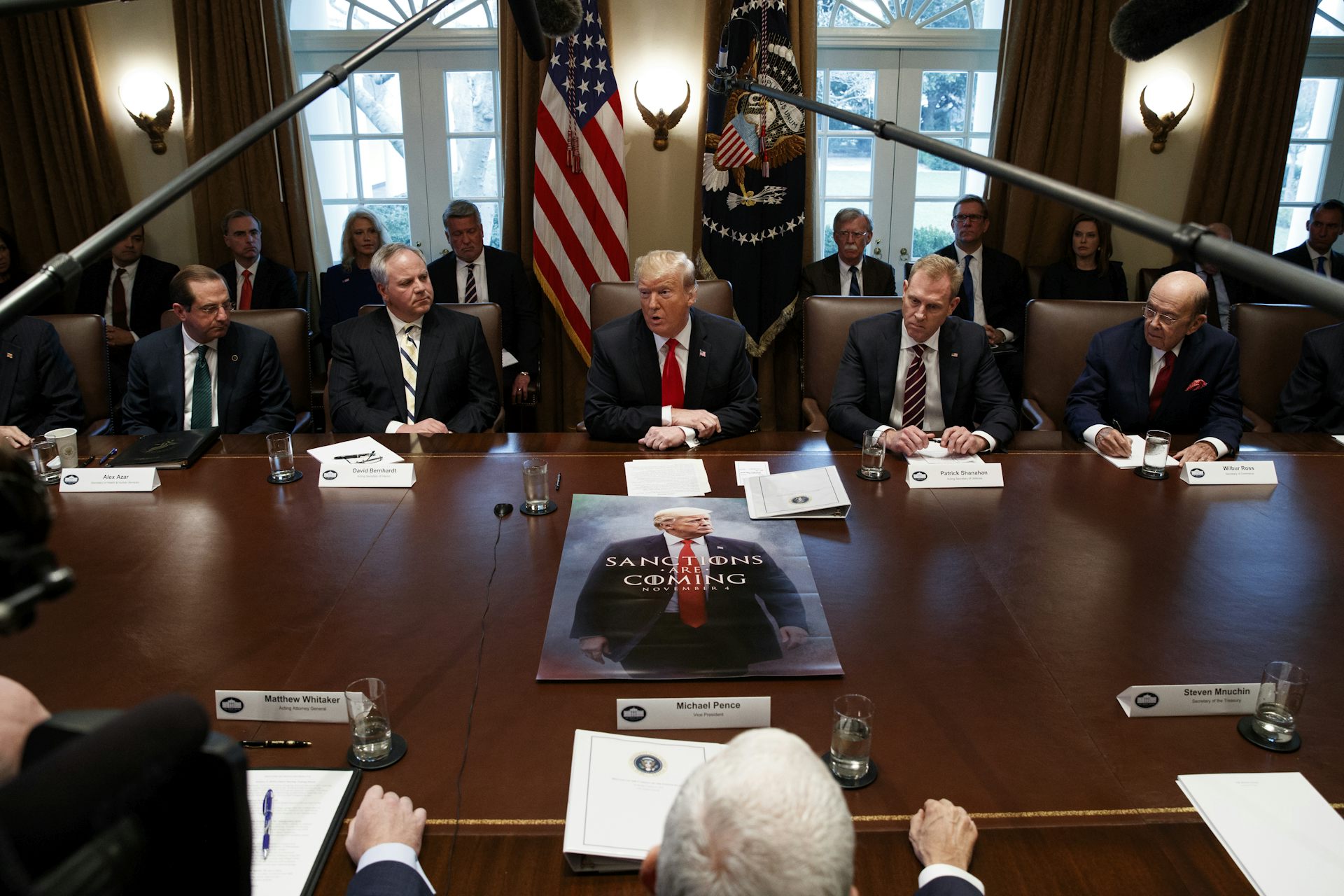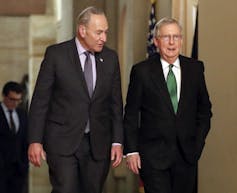
Derek W. Black, University of South Carolina
President Donald Trump increasingly acts as though he believes he can ignore Congress and set wide-ranging national policies on his own.
He has, for instance, recently taken unilateral steps to cut off foreign aid to countries he says are sending too many migrants to the United States. He wants to redirect some of the Pentagon’s budget to building the border wall that Congress rejected. His administration has separated families at the border, rolled back student loan protections and energy efficiency standards, and reportedly blocked AT&T Inc.’s US$85 billion acquisition of Time Warner.
Congress has responded by scheduling hearings and requesting documents from the administration. So far, Trump has largely dismissed this congressional oversight as “presidential harassment” and attempted to resist by claiming executive privilege exempts him from oversight.
In his State of the Union address, Trump went so far as to say that “if there is going to be peace and legislation, there cannot be war and investigation.”
As a constitutional law scholar, I’m certain that the answer to who wins this fight is clear.
Presidential power to override Congress is limited to a very small set of circumstances. As for everything else, the Constitution empowers Congress to set the nation’s course and keep it on track through oversight.
Congress can eliminate almost every federal agency in the country or, instead, redirect agencies’ efforts toward building homes for the poor and require daily reports on progress toward that goal. As long as the votes are there in Congress to pursue a course of action, presidents can’t do much about it.
Carrying out laws
Oversight allows Congress to ensure the executive is properly carrying out the laws as Congress intends.
The Brookings Institution, a centrist think tank, has created a new “oversight tracker,” which shows that Congress is doing this across a wide range of issues and agencies: energy, education, immigration, commerce, civil rights, rule of law, ethics and more.
Congress is asking the administration important policy questions. Are adequate rules, resources and incentives in place to reunite families who have been separated at the border? Are the nation’s anti-trust laws being used to achieve political rather than legal ends? Are student loan providers being held accountable for their failure to treat students fairly? Why have energy efficiency improvements slowed down or reversed?
All federal agencies, commissions and offices that presidents direct were created by Congress.
Congress has created more and more federal agencies over time, and increased the scope of the executive branch’s authority. But the power of individual presidents remains constitutionally limited to the powers that Congress gives them.

Operating within limits
The executive branch started out small.
George Washington only had four Cabinet officials. Lincoln had seven.
The executive branch remained small until the early 20th century, when the Great Depression led Congress to expand and create various agencies to deal with the economy, poverty and unemployment.
In the 1960s and ‘70s, Congress expanded the executive branch to its approximate current shape and size, adding agencies like Housing and Urban Development, Transportation, Energy and Education. Since then, the number of federal employees has hovered around 2 million.
Their immediate boss has always been the person in the Oval Office. But the Constitution still demanded that these executive agencies and their staff operate within the limits Congress set. Congress cannot delegate lawmaking to the president or any other executive officer or agency. Legislators cannot, for instance, leave it to the president to singlehandedly figure out what type of behavior to criminalize or how the nation should spend taxpayer dollars.
The Supreme Court has explained that Congress must establish rules that point agencies in the right direction, even if Congress wants those agencies to exercise discretion implementing the law.
None of this is to suggest that presidents lack significant power.
Without agencies enforcing the law under the president’s leadership, federal laws would be nothing but ink on paper. And in our increasingly complex world, Congress needs agencies to fill gaps in the law.
Congress, for instance, can prohibit the release of pollutants that make the air unsafe to human health. But if lawmakers are not confident that they have discovered all the unsafe pollutants or the precise level at which they pose a risk, they can direct agencies to assess those issues further as science develops and regulate accordingly.

The important lesson for today is that the vast majority of federal power lies in the hands of legislators, not presidents.
Save the most central functions of the executive – law enforcement, managing the Treasury, foreign affairs and the military – presidents only have the power and agencies that Congress gives them.
Holding agencies accountable
No matter how much power Congress bestows upon presidents and agencies, that power is constrained by the continuing and final checks the Constitution gives Congress.
Presidents may nominate agency heads, ambassadors and federal judges at their discretion, but senators confirm or reject them. Equally important, the president’s constitutional power to make those appointments only covers high-ranking officials.
Congress can, on a case-by-case basis, choose who will appoint inferior officers and limit the president’s ability to remove them. For instance, to address ethical breaches by the executive branch following Watergate, Congress passed legislation establishing an independent counsel, an official which a special court rather than the president or attorney general would appoint for the sake of impartiality.
Congress also sets all the agencies’ budgets on an annual basis and dictates how they will spend their budgets. In short, lawmakers wield enormous authority over the presidency and they may ask for almost anything they want.
The people can fire Congress every two years, but they rely on their representatives to hold the White House accountable all the time. Americans need Congress to make sure presidents and their staff are enforcing the law in ways that meet the public’s needs.
Ultimately, the executive branch – like Congress – works for the people, not presidents.
Derek W. Black, Professor of Law, University of South Carolina
This article is republished from The Conversation under a Creative Commons license. Read the original article.



















